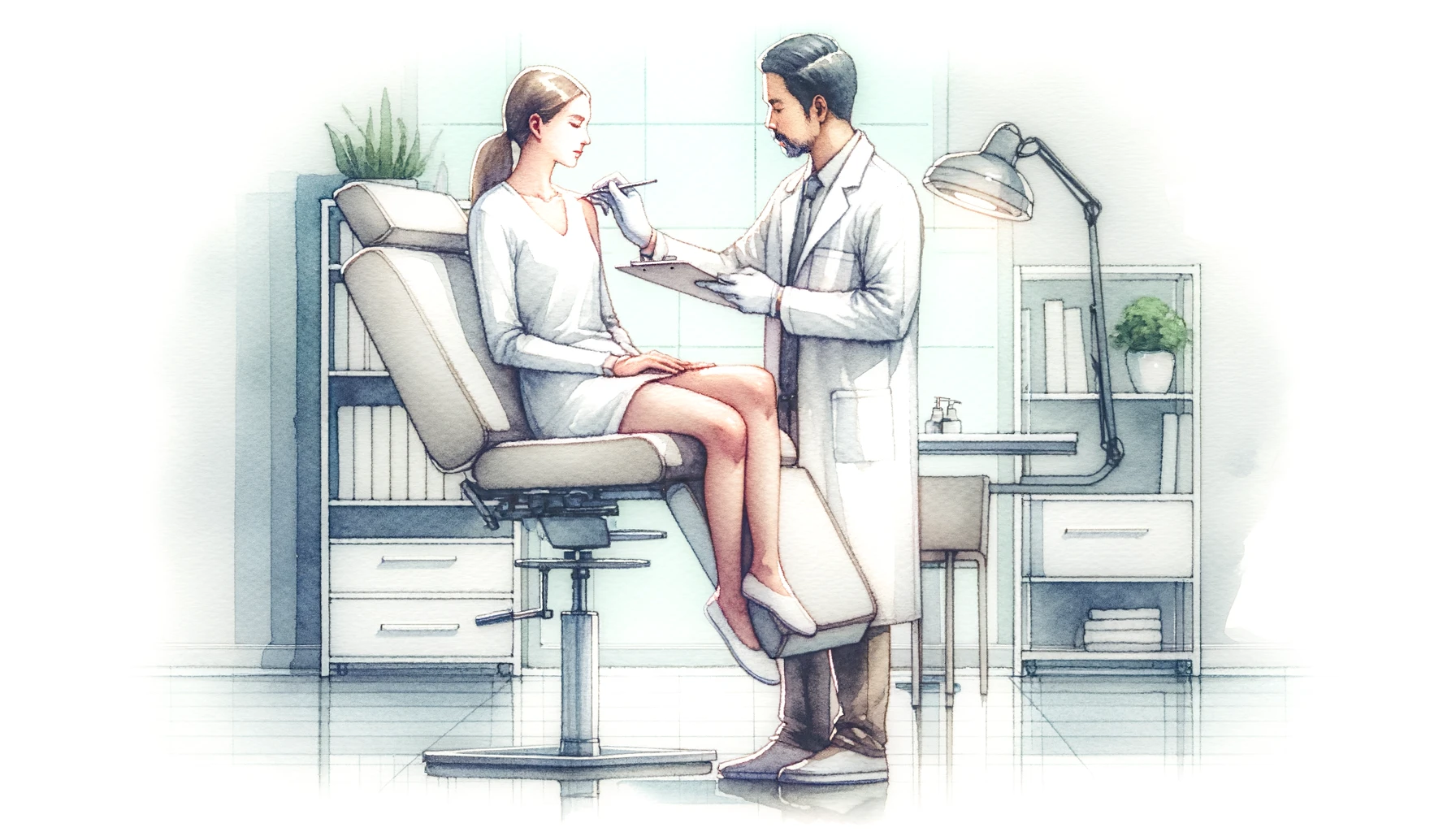Dermatologist or Allergist: A Quick Guide
| Feature | Dermatologist | Allergist |
|---|---|---|
| Area of Expertise | Skin, hair, nails, mucous membranes | Immune system, allergies |
| Conditions Treated | Acne, eczema, psoriasis, rosacea, warts, moles, skin cancer, hair loss, nail issues | Hives, rashes, itchiness, swelling, contact dermatitis, seasonal allergies, food allergies, asthma, anaphylaxis |
| Diagnostic Tools | Biopsies, patch tests, specialized imaging | Skin prick tests, blood tests, allergy panels |
| Treatment Options | Topical medications, oral medications, light therapy, procedures (e.g., laser treatment), surgery | Medications (antihistamines, corticosteroids), immunotherapy, education on allergen avoidance |
| When to See | Skin concerns not related to allergies, cosmetic concerns, suspected skin infections | Suspected allergic reaction on skin, other allergy symptoms, unclear cause of skin symptoms |
| Overlapping Zone | Eczema, hives with unknown triggers | May be helpful for comprehensive diagnosis and treatment |
Table of Contents
Have you been experiencing skin troubles lately? Is an annoying rash keeping you up at night? Determining the right specialist to visit can be confusing, especially when both dermatologists like Dr. Anju Methil at Skin and Shape Clinic and allergists deal with skin issues. Don’t worry, you’re not alone! To help you navigate this medical maze, let’s delve into the world of “dermatologist vs. allergist” and guide you towards the specialist who can best alleviate your concerns.
Demystifying Expertise:
Dermatologists: These are the skin saviors! They diagnose and treat a wide range of conditions affecting the skin, hair, nails, and even mucous membranes. Think acne, eczema, psoriasis, moles, skin cancers, and much more. They’re equipped with various diagnostic tools like biopsies, patch tests, and specialized imaging techniques.
Allergists: Picture them as immune system detectives. They focus on identifying and managing allergies that can manifest in various forms, including skin reactions. They perform allergy testing through skin prick tests or blood tests, pinpoint triggers, and offer treatment options like immunotherapy.
When to See a Dermatologist:
- Skin concerns not related to allergies: Acne, eczema, psoriasis, rosacea, warts, moles, skin cancer screenings, hair loss, nail issues.
- Cosmetic concerns: Botox, fillers, laser treatments, chemical peels.
- Suspected skin infections: Bacterial, fungal, or viral infections.
When to See an Allergist:
- Suspected allergic reaction on the skin: Hives, rashes, itchiness, swelling, contact dermatitis.
- Other allergy symptoms: Seasonal allergies, food allergies, asthma, anaphylaxis.
- Unclear cause of skin symptoms: If you’re unsure whether your skin problem is allergy-related, an allergist can help rule it out.
The Overlapping Zone:
Sometimes, the lines blur. Conditions like eczema and hives can have both allergic and non-allergic triggers. In such cases, consulting both specialists might be recommended for a comprehensive diagnosis and treatment plan.
Remember: This blog is for informational purposes only and should not be a substitute for professional medical advice. Always consult your primary care physician before seeking specialized care.
Bonus Tip: When choosing a specialist, consider their experience, area of expertise, and patient reviews. Don’t hesitate to ask questions during your consultation to ensure you feel comfortable and confident in their approach.
With the right knowledge and guidance, you can find the key to unlocking healthy, happy skin. So, go forth, conquer your skin woes, and don’t hesitate to scratch that itch for expert care!
10 FAQs about Dermatologist or Allergist
| Question | Answer |
|---|---|
| My skin is itchy, but I don’t have any known allergies. Should I see a dermatologist or allergist? | Start by seeing a dermatologist to rule out other skin conditions. If the cause remains unclear, they may recommend seeing an allergist to explore potential allergy triggers. |
| I have eczema and suspect it might be triggered by an allergy. Who should I see? | Consulting both a dermatologist and allergist might be beneficial. The dermatologist can manage the eczema itself, while the allergist can help identify and address any underlying allergies. |
| Can a dermatologist treat hives? | Yes, dermatologists can treat hives, but if the cause is suspected to be an allergy, they might recommend seeing an allergist for further evaluation and allergy testing. |
| What happens during a patch test at a dermatologist’s office? | Small amounts of potential allergens are applied to your skin, and you’ll be monitored for reactions over a few days. This helps identify contact allergens. |
| Does an allergist offer cosmetic treatments like Botox or laser therapy? | No, allergists primarily focus on allergies and their related symptoms. For cosmetic concerns, a dermatologist is the specialist to see. |
| Can I see both a dermatologist and allergist for the same skin issue? | Yes, if you feel both specialists could contribute to your diagnosis and treatment plan, seeking consultations with both is perfectly acceptable. |
| What if I can’t afford to see both specialists? | Discuss your concerns with your primary care physician first. They can help determine the most likely cause of your skin issue and recommend the most appropriate specialist based on your situation and insurance coverage. |
| How long does it typically take to get an appointment with a dermatologist or allergist? | Wait times can vary depending on your location, the specialist’s availability, and your insurance. Contact their offices directly for accurate wait time estimates. |
| What questions should I ask during my consultation with the specialist? | Don’t hesitate to ask about their experience with your specific condition, treatment options, potential side effects, and any follow-up care needed. |
| Should I bring anything specific to my appointment? | A list of your current medications, any relevant medical history, and questions you want to ask are all helpful to bring to your consultation. |
